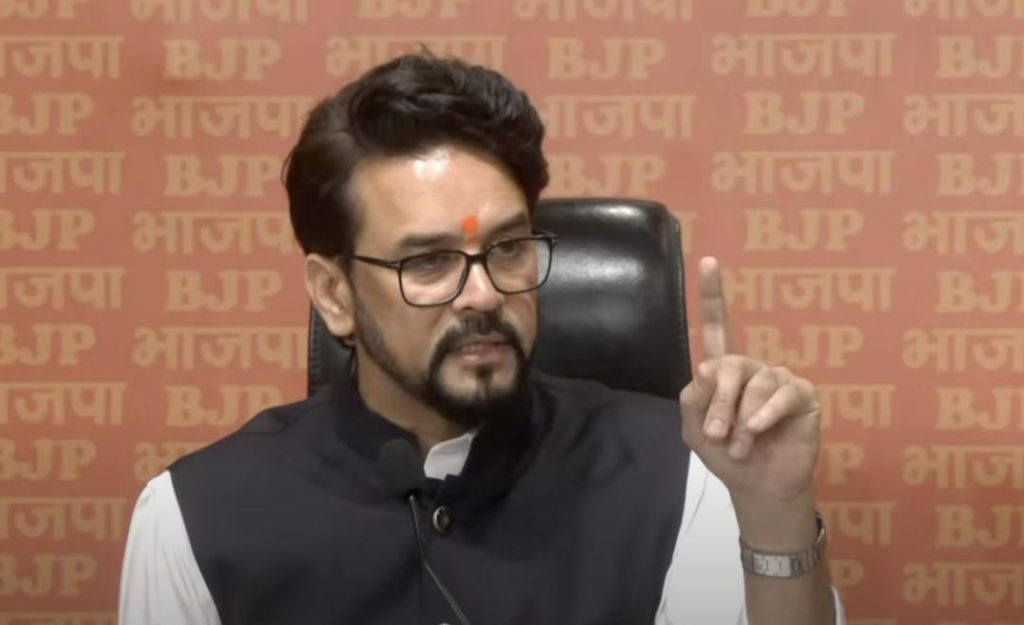
Congress & CPI made Bhimrao Ambedkar lose the poll in 1952: BJP
The Indian political landscape has witnessed numerous significant events since independence. One such event that has sparked controversy and debate is the defeat of Dr. Bhimrao Ambedkar, the chief architect of the Indian Constitution, in the 1952 general elections. According to BJP MP Anurag Thakur, the Congress and the Communist Party of India (CPI) conspired to ensure Ambedkar’s defeat, laying the foundation for electoral corruption in Indian politics.
Speaking in the Lok Sabha, Thakur stated that the Congress and CPI together defeated Ambedkar, a constitution maker and a saint-like leader, in the election. He emphasized that 74,333 votes were rejected, which was a significant factor in Ambedkar’s defeat. Thakur’s comments have sparked a heated debate, with many questioning the role of the Congress and CPI in Ambedkar’s defeat.
The 1952 general elections were a significant milestone in Indian politics, as they marked the first general elections held after independence. The elections saw the rise of the Congress party, which had been instrumental in the country’s struggle for independence. The CPI, on the other hand, was a new entrant in the political landscape, and its presence was expected to shake things up.
Ambedkar, who was then a member of the Indian Parliament, was a prominent figure in the country’s politics. He was the chairman of the Drafting Committee of the Constitution and played a crucial role in drafting the document. Despite his significant contributions to the country, Ambedkar faced opposition from various quarters, including the Congress and CPI.
Thakur’s comments have sparked a debate about the role of the Congress and CPI in Ambedkar’s defeat. Many have questioned the motives behind the two parties’ actions, with some suggesting that they wanted to eliminate Ambedkar as a potential rival. Others have argued that the rejection of 74,333 votes was a result of administrative inefficiencies and not a conspiracy.
The defeat of Ambedkar in the 1952 elections was a significant setback for the Dalit community, which had expected him to be a powerful voice in the Parliament. Ambedkar’s defeat led to a sense of disillusionment among the Dalits, who felt that their leader had been betrayed by the very people he had worked with.
In the years that followed, the Congress and CPI continued to dominate Indian politics, with the two parties engaging in a fierce battle for power. The 1952 elections marked the beginning of a long period of dominance by the two parties, with the Congress emerging as the single largest party.
The defeat of Ambedkar in the 1952 elections has been seen as a turning point in Indian politics, with many arguing that it marked the beginning of a decline in the country’s democratic values. The incident has also been seen as a symbol of the Congress and CPI’s willingness to use underhanded tactics to achieve their goals.
In recent years, there has been a growing trend towards BJP’s efforts to identify with Ambedkar’s legacy, highlighting his contributions to the country’s Constitution and his commitment to social justice. Thakur’s comments have been seen as part of this strategy, with many arguing that the BJP is trying to create a divide between Ambedkar and the Congress.
In conclusion, the defeat of Dr. Bhimrao Ambedkar in the 1952 general elections was a significant event in Indian politics. According to BJP MP Anurag Thakur, the Congress and CPI conspired to ensure Ambedkar’s defeat, laying the foundation for electoral corruption in the country. The incident has sparked a debate about the role of the two parties in Ambedkar’s defeat, with many questioning their motives.
Sources:






